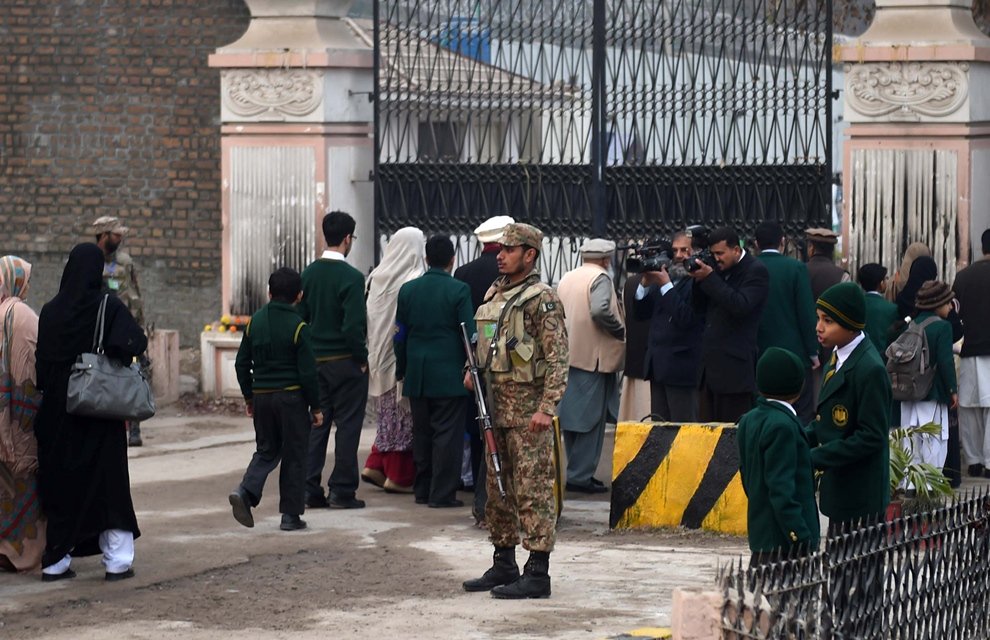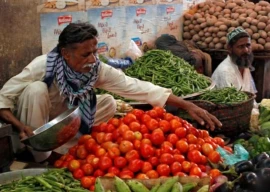
“If school environment is affected, it also alters a child’s personality,” says Nazia Parveen, a clinical psychologist at the Department of Youth Affairs. She says that children are in the process of comprehending the situation around them. “If they are not informed properly, the increased focus on security might cause fear. At times, they fear may turn into anxiety,” she warns, adding that children’s interest might shift away from studies if they got too absorbed in their surroundings. Parveen believes intervention aimed at a better understanding of the situation is pertinent. The department, she claims, is in the process of planning orientation sessions at schools. “Instructions from law enforcement agencies can certainly not be ignored in the current security situation. It is necessary to instill confidence in children and parents regarding what is going on,” says child rights activist Iftikhar Mubarak.

“As new security measures are taken, children are left wondering what is going on around them and whether their schools and classrooms are safe?” says Mubarak, adding that it is essential that psychological counselling is offered to children.
“The lack of awareness has created a sense of confusion,” says Sana Khawaja, the project coordinator at the Punjab chapter of the Pakistan Girl Guides Association (PGGA). “Lack of understanding of a situation, especially in an environment where protection and security have become integral, can have negative impacts on children and teachers,” she says.

She says that more than 40 PGGA trainers have initiated training sessions at government schools to explain stress management to teachers. “You need to train teachers to avoid panic in classrooms,” she says.
A threatening letter was found from the premises of a government girls’ school in Rajgarh last week. Khawaja says it is important how teachers are trained to tackle such situations. “We have reports about parents sitting outside schools. This is why counselling is required across the board,” he says.
Teams have been established by the government to make surprise inspections to monitor the security situation at educational institutions. Food Minister Bilal Yasin was present at the Rajgarh Government Girls High School where the threatening letter was found last Thursday.
On Sunday, Yasin claimed that due to completion of security measures in educational institutions, there would be an increased sense of security at schools. “The students’ morale is high. It is necessary that all segments of society cooperate to ensure a peaceful atmosphere at educational institutions,” he said.
A similar resolve was expressed by 16-year-old Arooj Arif, a grade 9 student. “It is not about fear. It is about clarity. What is being done, why it is being done and will it make us safer?” she inquires. “We go to schools. We hear about threats and then we are told they may be closed again. That does not stop us from coming back, but it does confuse us,” she says.Dr Asir Ajmal, a clinical psychologist, believes visible measures ensuring security are reassuring. “Visual symbols of security are good. Right now we need symbolic actions that can help people feel safe and secure,” he says. He also calls for counselling. “Group sessions held by teachers in which they can help children cope with worries and fear can be helpful. Fear and anxiety are natural responses in a state of war and conflict,” he says.
“The anxiety is due to terrorists, not the measures taken to protect us from them,” he stresses, adding that the security situation will have to improve for negative emotions to be prevented in the long run.
Published in The Express Tribune, January 24th, 2015.

















COMMENTS
Comments are moderated and generally will be posted if they are on-topic and not abusive.
For more information, please see our Comments FAQ